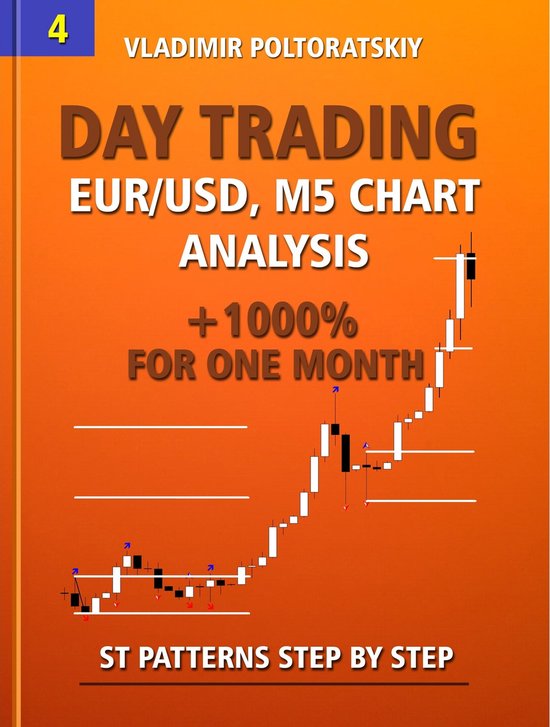
There are many great dividend stocks that you can choose from. If you want to reap the benefits of compounding interest, then you should consider these five companies. Recent dividend increases have allowed them to pay dividends of up 25%. All of these companies pay out a monthly dividend to their shareholders. You can read more about each company. These are just a few reasons you should consider each company. One or two of these might surprise you!
Northland Power
Northland Power is a great Canadian dividend stock. The company manages a large Taiwanese wind energy plant that can produce 1,044 megawatts. Canadian counterpart CT REIT is another solid monthly dividend stock. CT REIT owns a portfolio of high-quality assets throughout Canada, leasing them to Canadian Tire Corporation. The company has annual rental growth built into the long-term leases it holds, giving investors insight into Canadian Tire Corp's long-term plans.
While it is a renewable energy company the company also operates several utility and power businesses. The company has extensive experience operating and developing offshore wind farm. These companies have high growth potential and a strong dividend history. Northland Power shares may benefit as more Canadians are interested in renewable energy. These stocks have outperformed all other stock markets in the past half decade. In fact, revenue and earnings have grown by 31% in just three years.

LTC Properties
LTC Properties is now one of the top monthly dividend stocks for income investors. Despite recent share prices falling, this property developer continues to pay a steady dividend. Despite its recent share price decline, LTC Properties is still able to cover its dividend with a tight payout ratio. It has also shown that its management believes the future is brighter that what it experienced in the past.
These monthly dividend stock have many advantages over other kinds of dividend investments. These stocks can provide passive income as well as exposure to niche industries and income stability. Dividend yields are calculated by averaging the last payout each month and dividing it by the share price. CEF Connect provides the expense ratio and discount/premium NAV. These two figures are also useful in determining which companies are the best monthly dividend stocks.
Stag Industrial
If you are looking for a stock to earn a dividend every month, STAG Industrial may be worth considering. The company went public just under a decade ago, and is focused on acquiring single-tenant industrial properties. STAG's focus on the ecommerce industry means that it is well-positioned for success as there is a growing demand for warehouse space. Investors will be rewarded with a great dividend yield.
STAG Industrial, an REIT that invests in real estate for single-tenant industrial properties, was founded in 2010. The company owns 544 properties in forty states. These properties are leased out to 359 different businesses in various industries. The company has a well-planned lease term and weighted average lease term. STAG Industrial provides a steady income stream and is a good choice for monthly dividend investors.

Prospect Capital
This company provides loans to small business owners with high interest rates and acquisition opportunities for smaller businesses. This company focuses on middle-market companies with private equity financial backing. The company has invested in several industries and holds loan securitizations of more than 127 companies. The company's investment portfolio contains 39 types of investments. Investors should pay attention to its net investment income, as the company may reduce its dividends down the road.
Prospect Capital is a private capital and debt funding company. It invests in middle markets companies that have between 100 and 2000 employees. With assets of $8.1 billion, it is one the largest BDCs. Prospect Capital is able serve these companies better than any other BDC because it has a limited competition. Its ability to source deals and invest in them has led it to grow.
FAQ
How do I choose a good investment company?
It is important to find one that charges low fees, provides high-quality administration, and offers a diverse portfolio. The type of security in your account will determine the fees. Some companies don't charge fees to hold cash, while others charge a flat annual fee regardless of the amount that you deposit. Others charge a percentage based on your total assets.
You should also find out what kind of performance history they have. If a company has a poor track record, it may not be the right fit for your needs. Avoid companies that have low net asset valuation (NAV) or high volatility NAVs.
Finally, you need to check their investment philosophy. A company that invests in high-return investments should be open to taking risks. If they are unwilling to do so, then they may not be able to meet your expectations.
What is a mutual-fund?
Mutual funds can be described as pools of money that invest in securities. They provide diversification so that all types of investments are represented in the pool. This helps to reduce risk.
Professional managers manage mutual funds and make investment decisions. Some funds also allow investors to manage their own portfolios.
Most people choose mutual funds over individual stocks because they are easier to understand and less risky.
What is a REIT?
A real-estate investment trust (REIT), a company that owns income-producing assets such as shopping centers, office buildings and hotels, industrial parks, and other buildings is called a REIT. They are publicly traded companies which pay dividends to shareholders rather than corporate taxes.
They are similar companies, but they own only property and do not manufacture goods.
What is security on the stock market?
Security is an asset that generates income for its owner. Shares in companies is the most common form of security.
A company could issue bonds, preferred stocks or common stocks.
The earnings per share (EPS), and the dividends paid by the company determine the value of a share.
A share is a piece of the business that you own and you have a claim to future profits. If the company pays a payout, you get money from them.
Your shares can be sold at any time.
How does Inflation affect the Stock Market?
The stock market is affected by inflation because investors need to pay for goods and services with dollars that are worth less each year. As prices rise, stocks fall. This is why it's important to buy shares at a discount.
How do I invest in the stock market?
Through brokers, you can purchase or sell securities. A broker can sell or buy securities for you. You pay brokerage commissions when you trade securities.
Banks charge lower fees for brokers than they do for banks. Because they don't make money selling securities, banks often offer higher rates.
An account must be opened with a broker or bank if you plan to invest in stock.
If you are using a broker to help you buy and sell securities, he will give you an estimate of how much it would cost. Based on the amount of each transaction, he will calculate this fee.
Ask your broker questions about:
-
You must deposit a minimum amount to begin trading
-
What additional fees might apply if your position is closed before expiration?
-
What happens when you lose more $5,000 in a day?
-
How many days can you maintain positions without paying taxes
-
How much you can borrow against your portfolio
-
Transfer funds between accounts
-
How long it takes for transactions to be settled
-
The best way to sell or buy securities
-
How to avoid fraud
-
How to get help for those who need it
-
Can you stop trading at any point?
-
What trades must you report to the government
-
Whether you are required to file reports with SEC
-
Do you have to keep records about your transactions?
-
Whether you are required by the SEC to register
-
What is registration?
-
How does this affect me?
-
Who is required to be registered
-
When do I need registration?
What is the difference?
Brokers are specialists in the sale and purchase of stocks and other securities for individuals and companies. They take care all of the paperwork.
Financial advisors can help you make informed decisions about your personal finances. Financial advisors use their knowledge to help clients plan and prepare for financial emergencies and reach their financial goals.
Banks, insurers and other institutions can employ financial advisors. They can also be independent, working as fee-only professionals.
Consider taking courses in marketing, accounting, or finance to begin a career as a financial advisor. It is also important to understand the various types of investments that are available.
Statistics
- Individuals with very limited financial experience are either terrified by horror stories of average investors losing 50% of their portfolio value or are beguiled by "hot tips" that bear the promise of huge rewards but seldom pay off. (investopedia.com)
- The S&P 500 has grown about 10.5% per year since its establishment in the 1920s. (investopedia.com)
- US resident who opens a new IBKR Pro individual or joint account receives a 0.25% rate reduction on margin loans. (nerdwallet.com)
- Ratchet down that 10% if you don't yet have a healthy emergency fund and 10% to 15% of your income funneled into a retirement savings account. (nerdwallet.com)
External Links
How To
How to Invest Online in Stock Market
One way to make money is by investing in stocks. There are many ways you can invest in stock markets, including mutual funds and exchange-traded fonds (ETFs), as well as hedge funds. The best investment strategy depends on your risk tolerance, financial goals, personal investment style, and overall knowledge of the markets.
To be successful in the stock markets, you have to first understand how it works. This involves understanding the various types of investments, their risks, and the potential rewards. Once you've decided what you want out your investment portfolio, you can begin looking at which type would be most effective for you.
There are three main types: fixed income, equity, or alternatives. Equity refers a company's ownership shares. Fixed income can be defined as debt instruments such bonds and Treasury bills. Alternatives include commodities and currencies, real property, private equity and venture capital. Each option has its pros and cons so you can decide which one suits you best.
There are two main strategies that you can use once you have decided what type of investment you want. The first is "buy and keep." This means that you buy a certain amount of security and then you hold it for a set period of time. Diversification, on the other hand, involves diversifying your portfolio by buying securities of different classes. You could diversify by buying 10% each of Apple and Microsoft or General Motors. Multiplying your investments will give you more exposure to many sectors of the economy. You can protect yourself against losses in one sector by still owning something in the other sector.
Another important aspect of investing is risk management. Risk management will allow you to manage volatility in the portfolio. You could choose a low risk fund if you're willing to take on only 1% of the risk. However, if a 5% risk is acceptable, you might choose a higher-risk option.
Your money management skills are the last step to becoming a successful investment investor. A plan is essential to managing your money. A good plan should cover your short-term goals, medium-term goals, long-term goals, and retirement planning. That plan must be followed! Keep your eyes on the big picture and don't let the market fluctuations keep you from sticking to it. You will watch your wealth grow if your plan is followed.